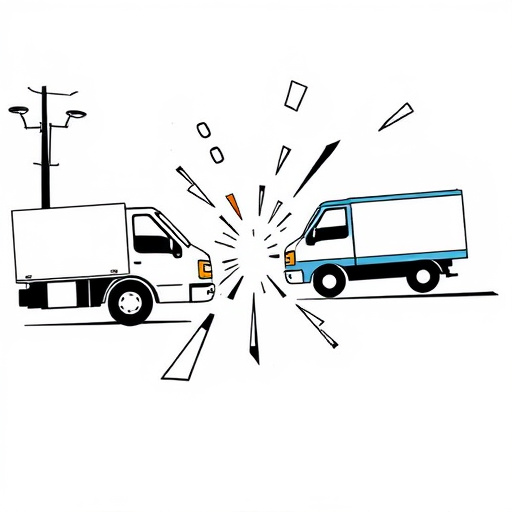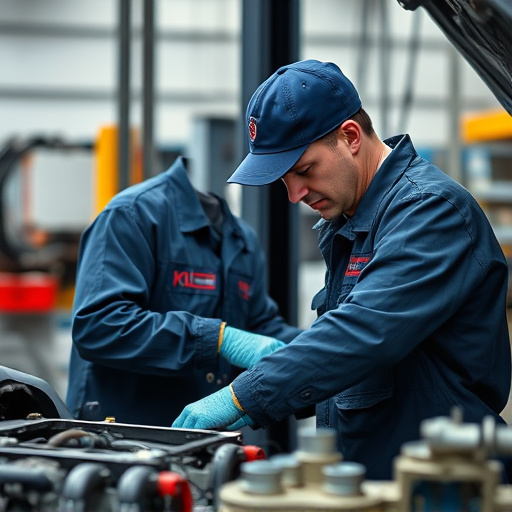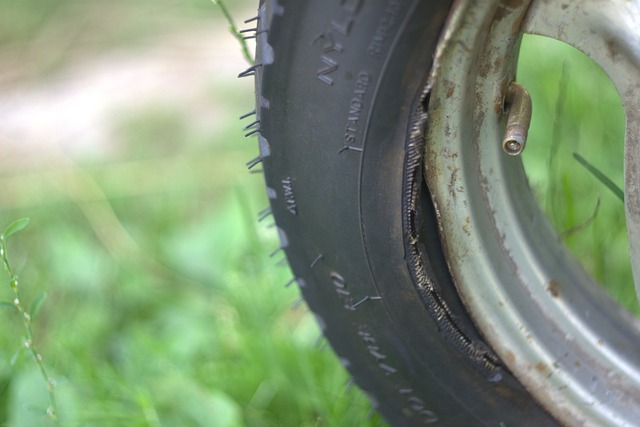Hazardous waste, from industrial and daily activities, poses severe risks to water and soil environments, including contamination and bioaccumulation. Effective hazardous waste management is crucial for mitigating these impacts through strict regulations on collection, treatment, storage, and disposal. Industries like auto body shops must adopt responsible practices, such as recycling and safe disposal, to protect local water sources and preserve soil fertility. This proactive approach not only safeguards ecosystems and human health but also fosters a sustainable future by preventing groundwater pollution, preserving biodiversity, and reducing ecological damage.
Hazardous waste management is a vital practice that protects our precious water sources and preserves the health of our soil. This article delves into the critical role of effective waste management in mitigating environmental damage caused by toxic substances. We’ll explore how these practices safeguard ecosystems, focusing on both immediate impacts and long-term benefits. Understanding hazardous waste and its potential to contaminate is the first step towards a cleaner, more sustainable future.
- Understanding Hazardous Waste and its Impact on Water and Soil
- The Role of Effective Hazardous Waste Management Practices
- Long-term Benefits and Environmental Safeguards
Understanding Hazardous Waste and its Impact on Water and Soil

Hazardous waste is a significant concern due to its potential to severely impact both water and soil environments. This type of waste includes byproducts from industrial processes, medical facilities, and even everyday activities like auto body painting or operations at an auto collision center. Materials such as chemicals, heavy metals, and toxic substances can contaminate groundwater, rivers, and streams, posing risks to ecosystems and human health. When absorbed into the soil, they can persist for long periods, leading to bioaccumulation in plants and animals.
Effective hazardous waste management is crucial to mitigate these adverse effects. It involves proper collection, treatment, storage, and disposal methods to ensure that toxic substances are handled safely and responsibly. Auto body shops, auto collision centers, and other industries that produce hazardous waste must adhere to strict regulations to prevent pollution. By implementing sound waste management practices, including recycling and safe disposal protocols, these facilities contribute to safeguarding local water sources and preserving soil fertility for future generations.
The Role of Effective Hazardous Waste Management Practices

Hazardous waste management plays a pivotal role in safeguarding our environment, with a special emphasis on preserving water and soil quality. Effective practices involve proper collection, treatment, and disposal methods to mitigate the harmful effects of toxic substances. By implementing robust systems, we can prevent pollutants from entering aquatic ecosystems and contaminating fertile soils.
This process is particularly crucial in sectors like automotive collision repair and tire services, where hazardous materials are often generated. Responsible management ensures that old tires, toxic chemicals, and damaged vehicle parts are handled with care, minimizing their potential to cause ecological damage. Such practices contribute to a sustainable future by reducing the negative impact on both water bodies and land resources.
Long-term Benefits and Environmental Safeguards

Hazardous waste management offers long-term benefits that extend far beyond immediate environmental cleanup efforts. By implementing robust practices, we prevent soil and water contamination from escalating, safeguarding ecosystems and human health for generations to come. This proactive approach ensures that our precious natural resources remain clean and safe, fostering a healthier and more sustainable future.
Moreover, effective hazardous waste management plays a pivotal role in mitigating the environmental impact of industries like automotive repair and car paint services. Proper disposal and treatment of toxic substances from these sectors can prevent groundwater pollution, preserve biodiversity, and reduce the risk of long-term ecological damage. This not only safeguards our water sources but also supports the overall resilience of local ecosystems, ensuring that car scratch repairs and other automotive maintenance tasks don’t come at the cost of a healthier planet.
Hazardous waste management is a critical practice that plays a pivotal role in protecting our precious water sources and preserving the integrity of the soil. By implementing effective strategies, we can mitigate the harmful effects of toxic substances, ensuring a healthier environment for current and future generations. Through comprehensive understanding and proactive measures, hazardous waste management acts as a powerful safeguard, fostering sustainability and promoting a harmonious coexistence between human activities and nature’s balance.













